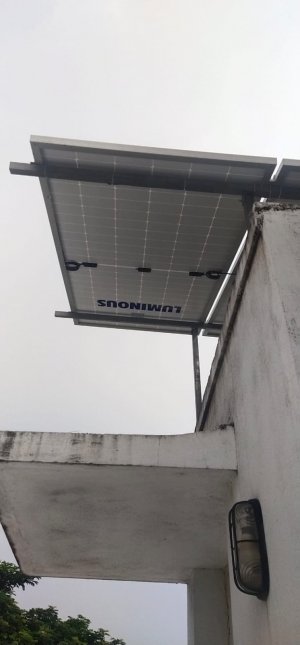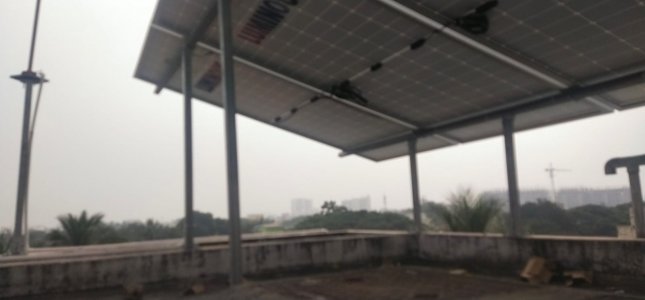The point is whether the batteries are worth an extra investment in urban settings. In Chennai, especially in Annanagar where I live, there are less powercuts and is usually announced in the media beforehand if done for grid maintainance. Batteries added to the rig would increase uniform power connectivity and independence from the grid and not essentially for utility bill savings. It would save you money with load sharing of circuits to the offgrid but to have entire household connected through off grid is not preferred. Batteries can be cheap but will wear out. Ongrid takes government discoms approval and some transition time in going functional which sucks however saves trouble wrt batteries or the maintenance of it thereoff. If the red tapism is put to an end by government, then going on the grid would be the best choice. Offgrid would make sense in areas with more powercuts only.
No not worth it to attach batteries in Urban areas they will increase investment. battery life depends upon cycles if there is no power cut or very
less then batteries will last over 10 years.I meant to say if someone decides to buy batteries also then go with these brand i didnt ment
they are compulsory. Best thing for you cn be install a 500 watt inverter bring down 2 12 volt solar wire and attach a 45amp suv battery if there is power cut one fan and lights will remain on. or as a inline UPS for PC. its like emergency backup at night and its cheap.
What i said earlier these power distribution companies subsidy scheme failed very badly. You will be giving power
to grid when there is no need and grid have lots of extra power at hand but there is no demand. what grid will do with so much power?
if you have extra power to give to grid then others also have extra power transferring to grid. When demand is high everyone will pull
power from grid like in evening hour and that costs money to govt it reaches 8rs per unit in peak hours for every single unit consumed
extra at that time you will also pull power from grid to run those AC. when there is demand its every where and same if power is surplus
it is surplus every where.so these solar systems are not going to effect grid so much. Now what companies did they slashed price
of power they takes from solar panels by 60%. or if not done they will do it in 2,3 months .Power companies promoting it to sell
solar panels they are earning money from all these why they don't let customer install panels of his choice? power companies have
tie-ups with these solar companies and profit is huge. Fellow member spent above 3.50 lakh for a 4.4kv solar system under subsidy it is more
expensive then non subsidy best panels by at least 20%.they are ripping common people under the disguise of subsidy. A 5kv solar plant
costs around 55k under 80% subsidy including installation and a submersible pump.so 5kv plant price is no more then 2.75 lakhs using best panels
available in India. Now is that 3.50lakh for 4.4 kv justifies? that too under subsidy. I can get you exact price from DC office tomorrow if one
needs. Ask around price of panels per watt you will know what's going on.
regards





